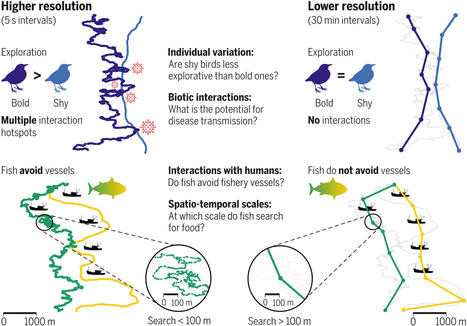So-called “big-data” approaches have revolutionized fields of research from astronomy to genetics. Such approaches are not limited to fields that seem inherently technical, because the combination of rapid data collection and advanced analytical techniques could be applied to almost any scientific question. Nathan et al. reviewed how these modern approaches are being applied to the very old field of animal tracking and monitoring. Large-scale data collection can reveal details about how animals use their environment and interact with each other that were impossible to explore previously.
Research and publish the best content.
Get Started for FREE
Sign up with Facebook Sign up with X
I don't have a Facebook or a X account
Already have an account: Login
Revue de presse et du net par le Pôle de partage des connaissances S&T de l'Office français de la biodiversité
Curated by
DocBiodiv
 Your new post is loading... Your new post is loading...
 Your new post is loading... Your new post is loading...
|
|










